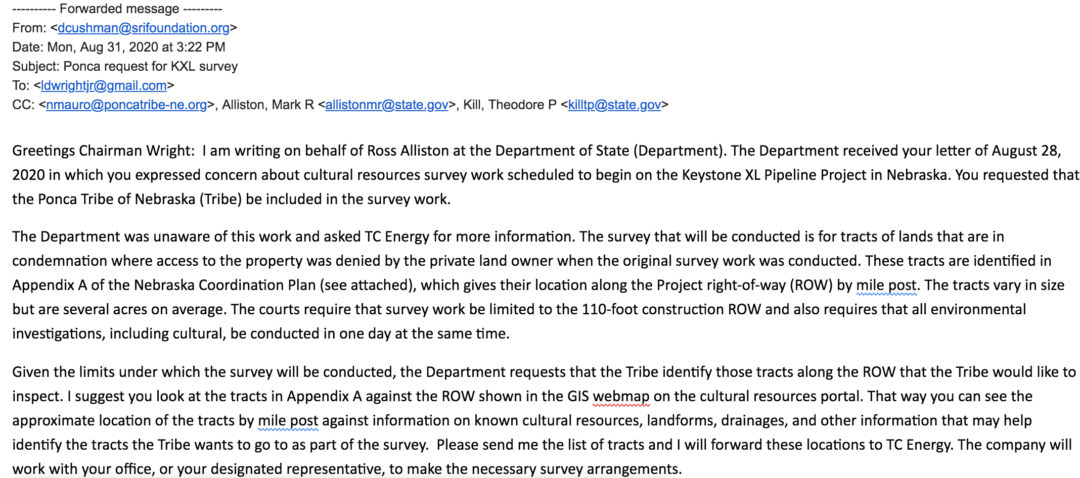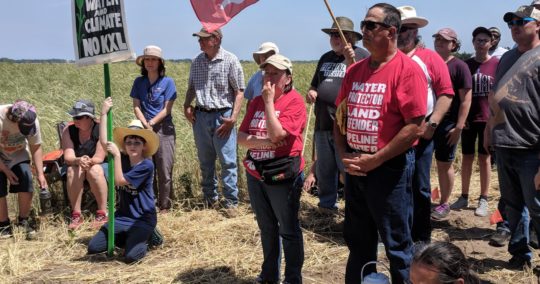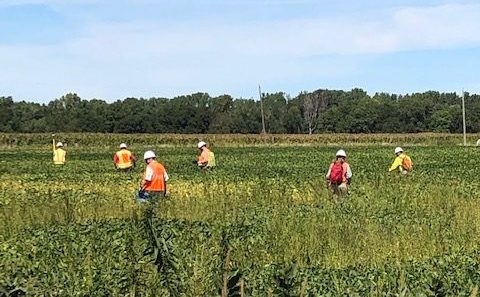

TransCanada / TC Energy has informed landowners on the proposed Keystone XL pipeline route who have challenged the eminent domain seizure of their property for the pipeline that the company intends to conduct various surveys — including for “cultural” Native American artifacts.
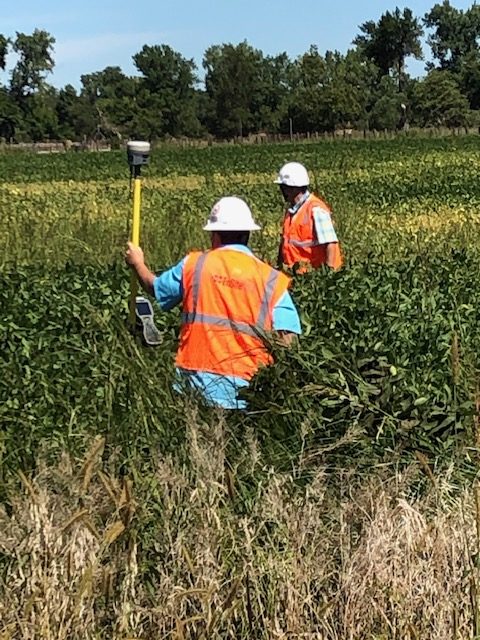

Unfortunately, due to the current status quo with eminent domain laws tipped heavily in favor of corporations, TransCanada has now been empowered with the legal right to enter their property for these surveys.
However, landowners were alarmed, along with authorities from the Ponca Tribe of Nebraska, when they learned of the deficiencies with these “inspections,” including the lack of any proper Tribal personnel participation in the survey process.
Landowners have also objected to the timing of these surveys during the fall harvest, when it’s clearly not possible to conduct surveys of the ground through waist-high soybeans.
Fellow landowner and Pipeline Fighter Art Tanderup, along with several Tribal Historic Preservation Officers (THPOs) from the Ponca Tribe went out to observe and document the first of these land “inspections” by TransCanada on a landowner in Madison County, Nebraska.
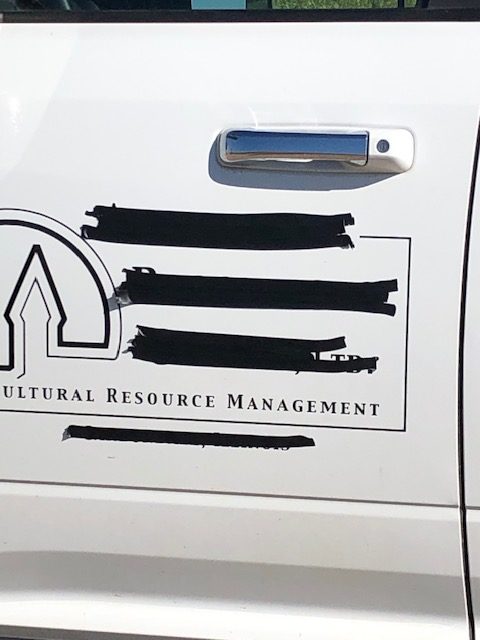

In fact, the third-party contractor that TransCanada hired to conduct these surveys attempted to conceal its own identity and association with the Keystone XL project by taping-over the company’s name on the trucks that arrived on Nebraska farmers’ property. The contractor trying to conceal its identity from Nebraska landowners is American Resources Group Ltd., out of Carbondale, Illinois.


Upon hearing of TransCanada’s plans the Ponca Tribe of Nebraska sent multiple letters to the U.S. State Department in August and September, objecting to these surveys as inadequate under the State Dept.’s own obligations to the Tribe, including requirements on the amount of land that needs to be surveyed, and what credentials these surveyors must possess in order to be considered “qualified.”
Apparently, the U.S. State Department was not even aware that TransCanada was planning these surveys.
David Cushman, a representative from the SRI Foundation hired by the State Dept. to “oversee” large-scale project reviews, wrote to the Ponca Tribe “on behalf of Ross Alliston at the Department of State” and indicated the State Dept. was “unaware” of TransCanada’s intended survey work.
Cushman pointed to the eminent domain condemnation process in Nebraska, which he said limited the company to conducting all surveying including “cultural” to a single day per property, and the survey parameters to within the 110-foot right-of-way.
Cushman, on behalf of Alliston and the U.S. State Department, invited the Ponca Tribe to participate in the already-underway survey process and “inspect” lands that are significant to the Ponca.
Chairman Larry Wright, Jr. of the Ponca Tribe of Nebraska responded to the State Dept. that “the Tribe cannot participate in so-called surveys that are clearly inadequate and will in no manner meet the obligations of DOS or TC Energy with respect to cultural and historic resources.”
“Given the lack of inclusion of the entire APE (Area of Potential Effect) and the methodology with which these surveys are apparently being conducted, it is clear that DOS and TC Energy are in no manner taking these cultural resource surveys seriously, and, in turn, cannot expect the Tribe to assist in these “surveys” to give them some semblance of legitimacy. DOS and TC Energy must conduct true and thorough cultural resource surveys, including TCP surveys, with full tribal involvement, of the entire APE in a manner that is consistent with professional standards. Anything less shows a blatant disregard for any tribal resources and sacred sites. The Tribe demands that DOS publicly and formally inform TC Energy that these so-called “surveys” will not be deemed to meet the obligations, commitments or requirements of the Programmatic Agreement or any applicable law related to cultural and historic resources.”
—Chairman Larry Wright, Jr., Ponca Tribe of Nebraska
